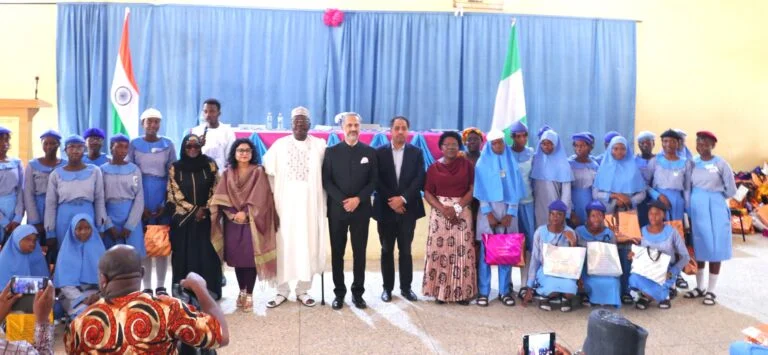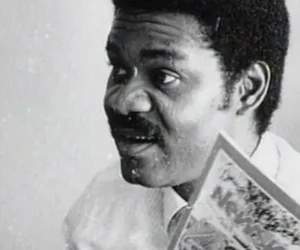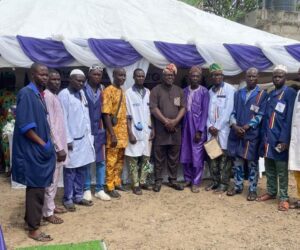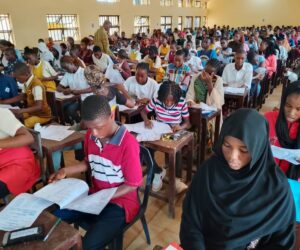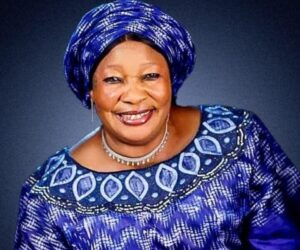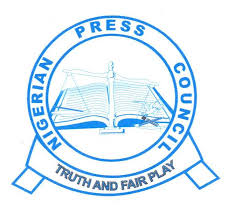By Sarafina Christopher
The High Commission of India in Nigeria has donated 2,000 gift packs to students of Government Girls Secondary School, Dutse as a reaffirmation of its commitment to gender equality and women’s empowerment.
The High Commission distributed the items on Thursday in Abuja as part of activities to commemorate the United Nations International Day of the Girl Child.
The News Agency of Nigeria (NAN) reports that on Dec. 19, 2011, the United Nations General Assembly adopted Resolution 66/170 declaring Oct. 11, as the International Day of the Girl Child.
The day is in recognition of girls’ rights and the unique challenges they face globally.
Amb. Abhishek Singh, the High Commissioner of India to Nigeria, said the gesture demonstrated India’s continued support for promoting gender equality, women’s empowerment, and women-led development.
He noted that the outreach formed part of the High Commission’s broader efforts to strengthen people-to-people ties between India and Nigeria, particularly in advancing education and empowerment for girls.
“In line with the United Nations theme for the 2025 International Day of the Girl Child, this year’s celebration focused on investing in girls’ rights and opportunities for a better and more equitable future,” he said.
Singh also emphasised the vital role of girls in building inclusive societies and called for greater investment in their health, education, and overall well-being.
He also highlighted the enduring friendship between India and Nigeria, citing shared colonial histories, long-standing cooperation, and common development goals.
Singh referenced India’s flagship initiative, “Beti Bachao, Beti Padhao” (Save the Girl Child, Educate the Girl Child), which promoted girls’ education and empowerment, noting that India’s women’s workforce participation rose from 22 per cent in 2017 and 2018, to 40.3 per cent in 2023 and 2024.
He added that women currently contributed about 18 per cent to India’s GDP and that the country had the world’s largest number of female commercial pilots.
According to him, this is a clear indicator of women’s rising participation in national development.
The envoy reaffirmed India’s readiness to share its experiences with Nigeria and commended the Nigerian Government’s efforts under the Renewed Hope Agenda to promote women’s empowerment, inclusive growth, and increased political participation.
He further underscored the need to harness Nigeria’s youthful population for sustainable development, noting that over 70 per cent of Nigerians were under 30 years old, making it one of the youngest populations globally.
Singh also commended Indian companies operating in Nigeria for their strong corporate social responsibility (CSR) contributions.
He revealed that over 200 Indian companies have invested more than 27 billion U.S dollars in Nigeria, adding that India remained Nigeria’s second-largest employers after the federal government.
He appreciated Indian firms including Sam Pharmaceutical Ltd., Sacvin Nigeria Ltd., Diva Sanitary Pads, Aviva Industries Nigeria Ltd., RR Paper Products Nig. Ltd., and Merchant Investors Ltd. for partnering with the High Commission to make the event a success.
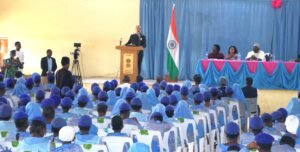
On his part, Dr Mohammed Ladan, Director and Secretary of the Federal Capital Territory Secondary Education Board, reaffirmed commitment to creating a safe, inclusive, and empowering learning environment for girls.
“We affirm our dedication to promoting gender equity in education, combating barriers to access and retention, and supporting mentorship, leadership, and life skills programmes for girls.
“To every girl in our school you are seen, you are valued, and you are unstoppable. Keep dreaming boldly and striving fearlessly. The world needs your voice,” he said.
Ladan also expressed appreciation to the Indian officials for their partnership.
Dr Fatima Mohammed, the Principal of the school, also expressed gratitude to the Indian High Commission for the visit and support.
She reiterated the school’s commitment to fostering an enabling environment for the girl child to thrive. (NAN)(www.nannews.ng)
Edited by Deborah Coker

